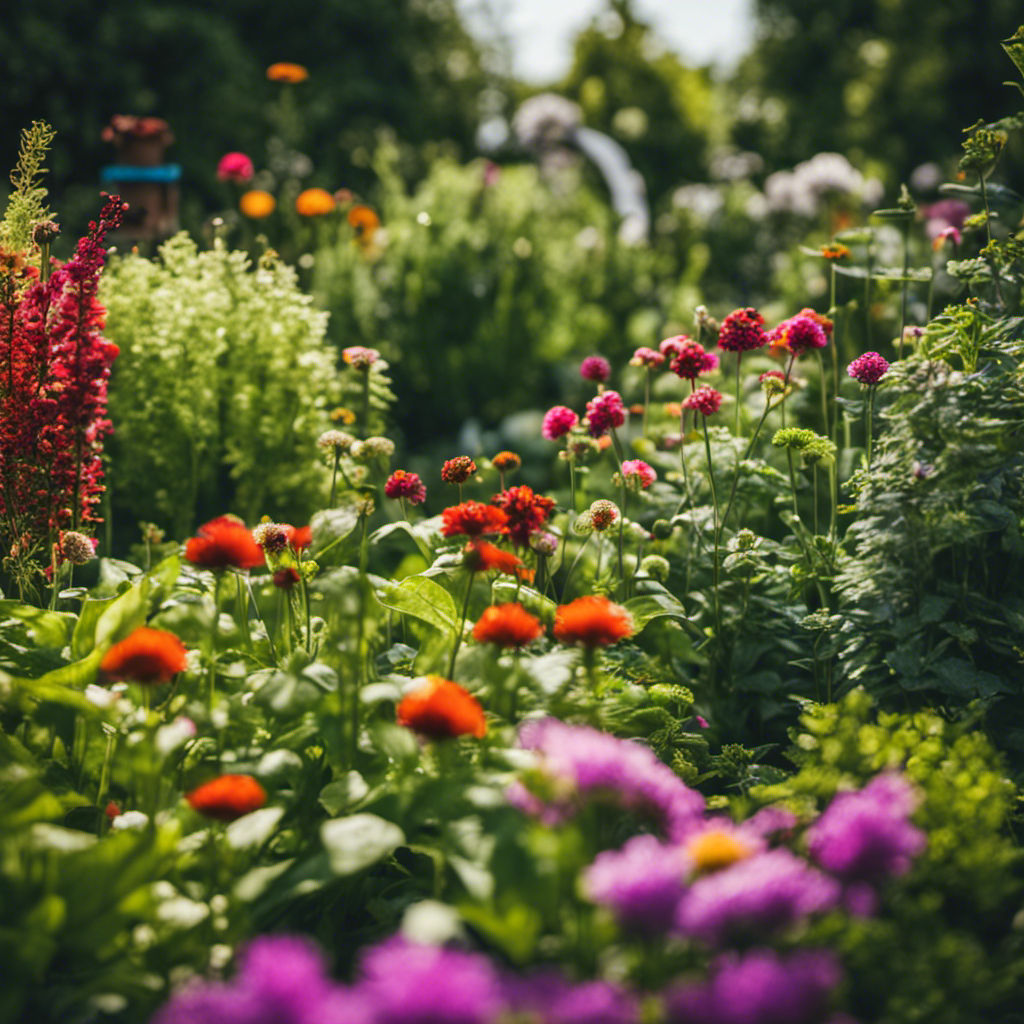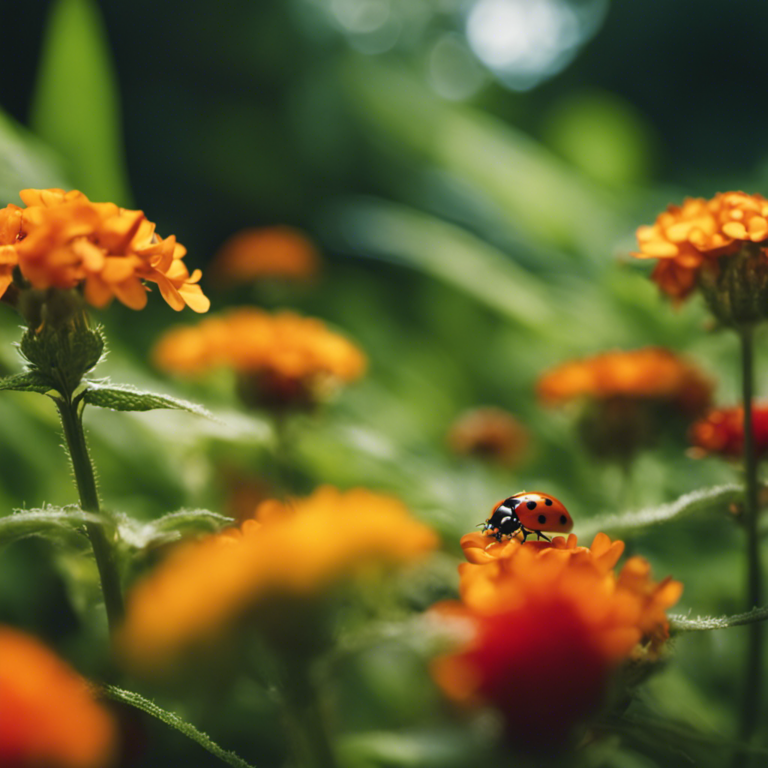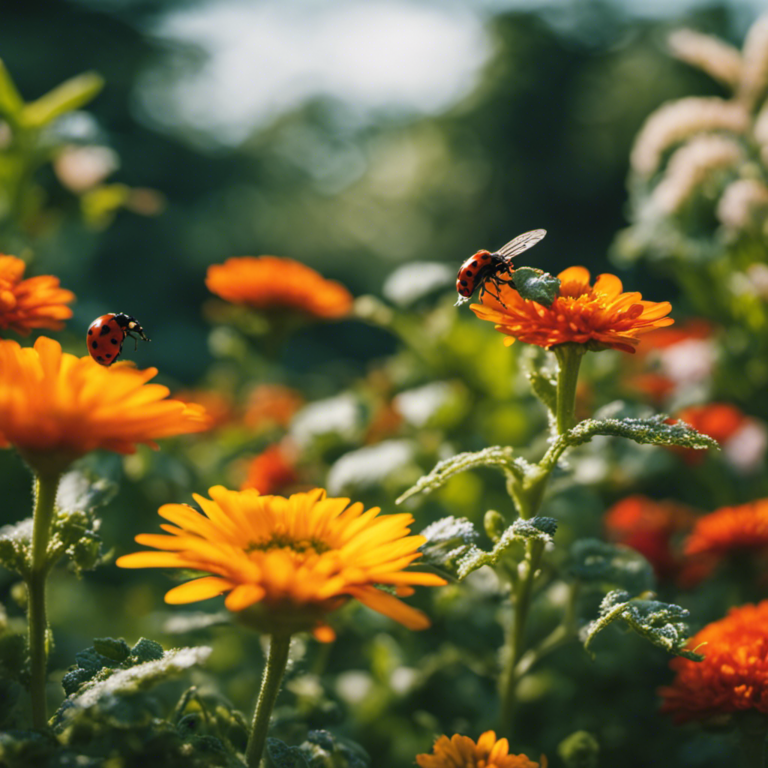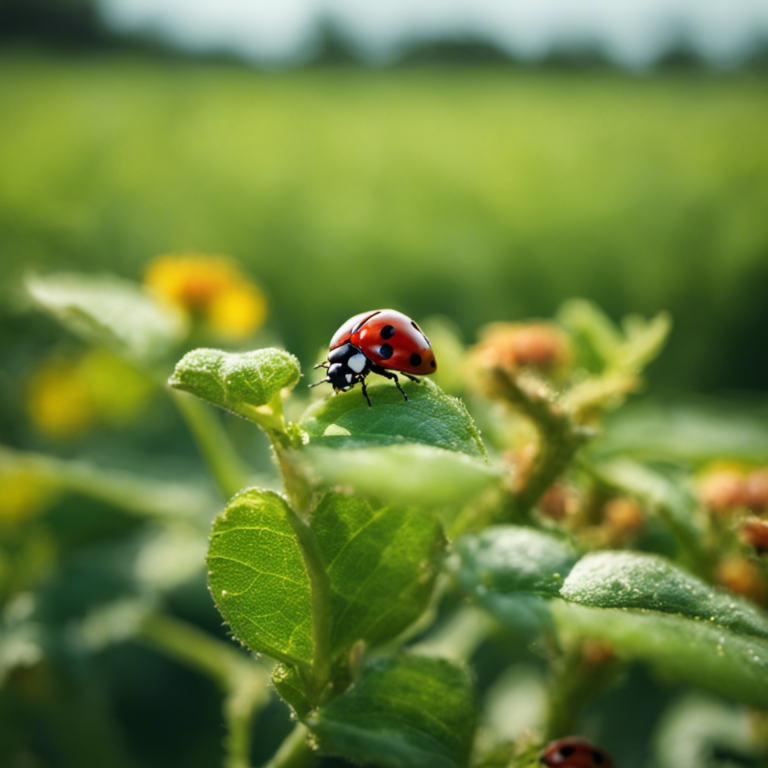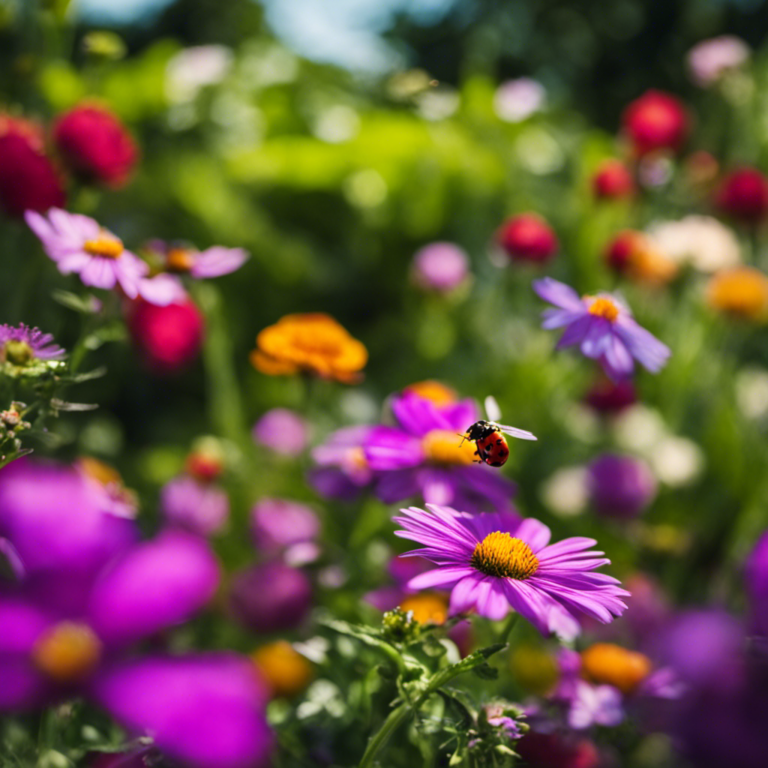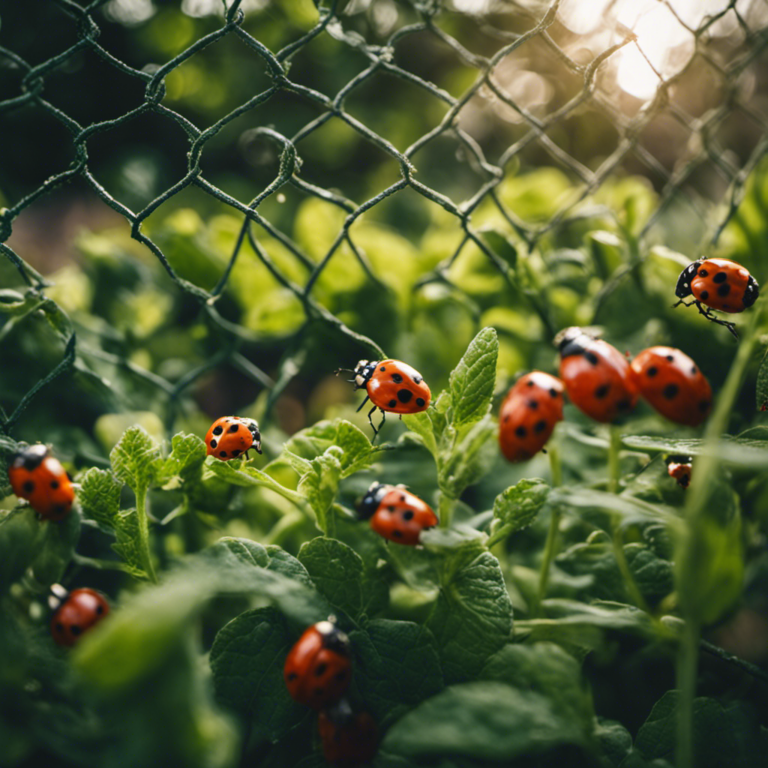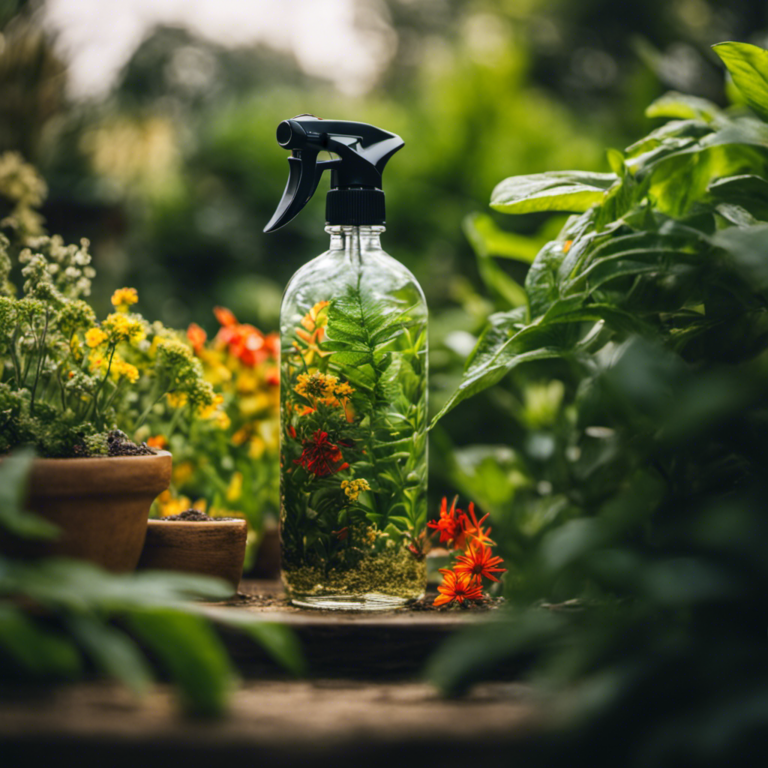Looking to get rid of those annoying garden pests? You’re in luck! We have the secret to natural pest control right here.
Bid farewell to harmful chemicals and welcome a thriving garden ecosystem. In this article, we will guide you on how to identify common garden pests, implement natural deterrents, attract beneficial insects, and use organic pest control solutions.
Prepare to discover the key to a pest-free garden and give your plants the care they deserve!
Key Takeaways
By using natural methods to deter pests, attracting beneficial insects, and utilizing organic pest control solutions, you can effectively get rid of garden pests and maintain a healthy ecosystem in your garden. For example, a gardener in California successfully repelled aphids by introducing ladybugs into their garden. This created a natural balance that kept the pests away without the need for harmful pesticides. These approaches not only help you achieve a pest-free garden but also contribute to protecting the environment.
Identify Common Garden Pests
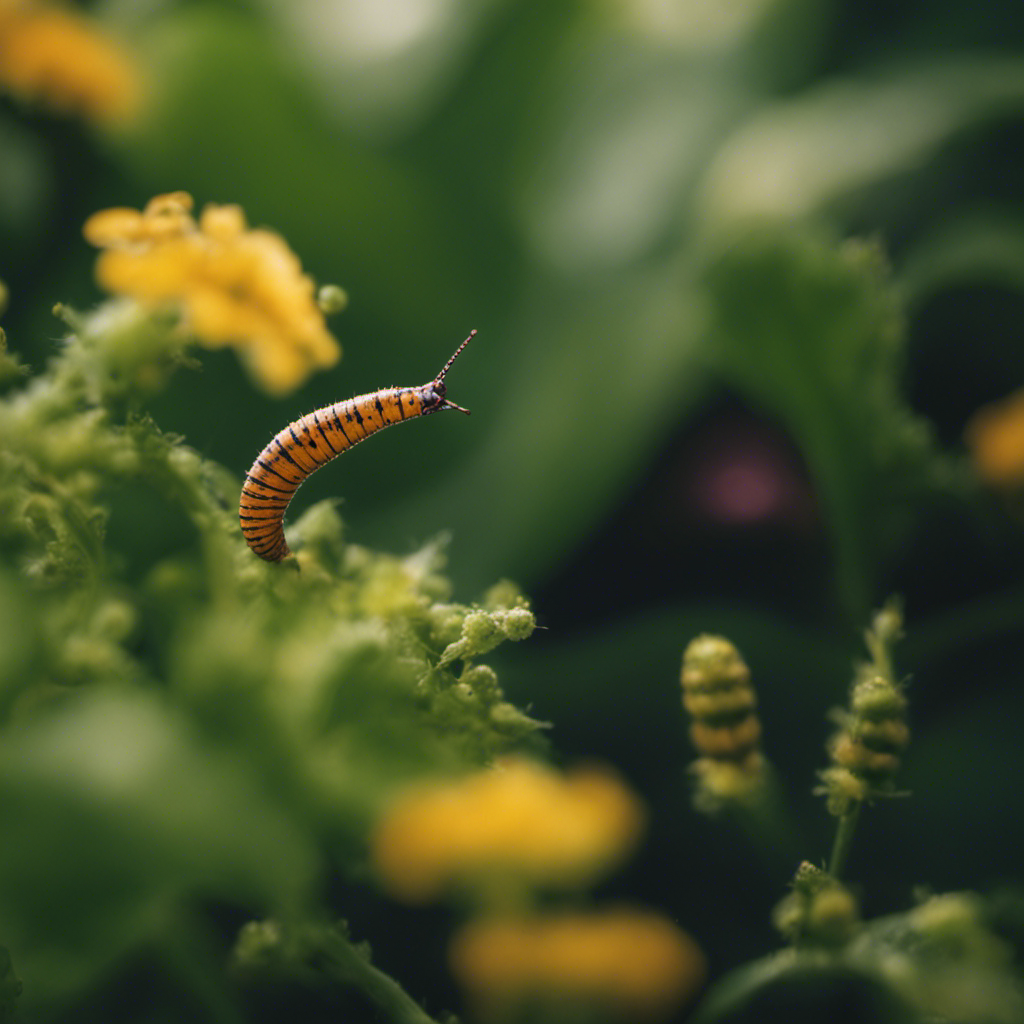
Identifying Common Garden Pests
To effectively get rid of garden pests in a natural way, it’s important to regularly identify the common pests that may be lurking in your yard and take action against them.
By using natural methods of pest control and implementing companion planting techniques, you can successfully keep these pests away. Natural pest control methods involve the use of organic solutions, such as neem oil or garlic spray, to deter and eliminate pests.
Companion planting, on the other hand, involves strategically planting certain plants together to repel pests or attract beneficial insects that prey on them. For instance, planting marigolds alongside your vegetables can help repel pests like aphids and nematodes.
Implement Natural Pest Deterrents
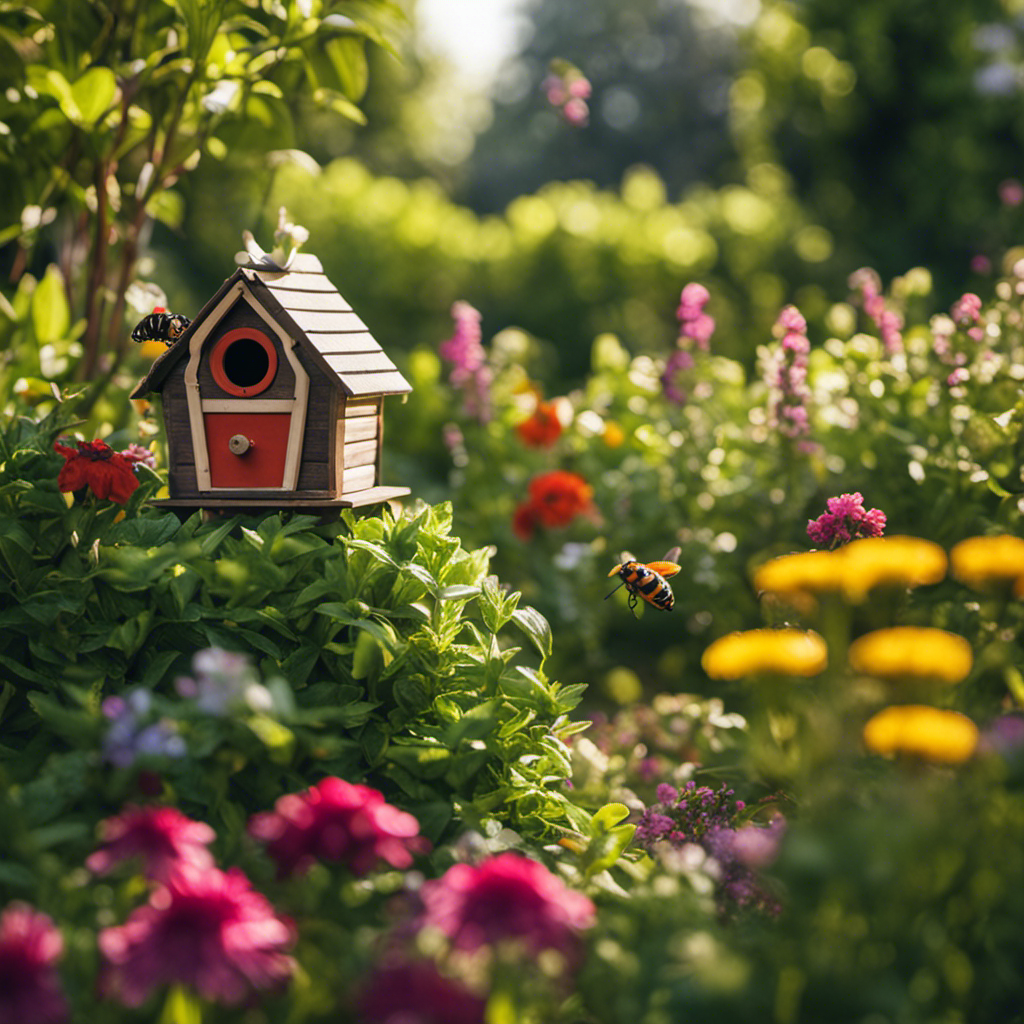
Effectively Repel Garden Pests Naturally
To keep garden pests at bay, you can rely on natural pest deterrents. One effective method is using plants that naturally repel pests. For instance, marigolds, lavender, and mint emit strong scents that ward off aphids, mosquitoes, and beetles. By strategically placing these plants around your garden, you can create a natural barrier that deters pests from entering.
Another useful technique is companion planting. This involves planting specific combinations of plants that help repel pests. For example, planting basil near tomatoes can deter tomato hornworms, while garlic planted near roses can repel aphids.
Attract Beneficial Insects to Your Garden
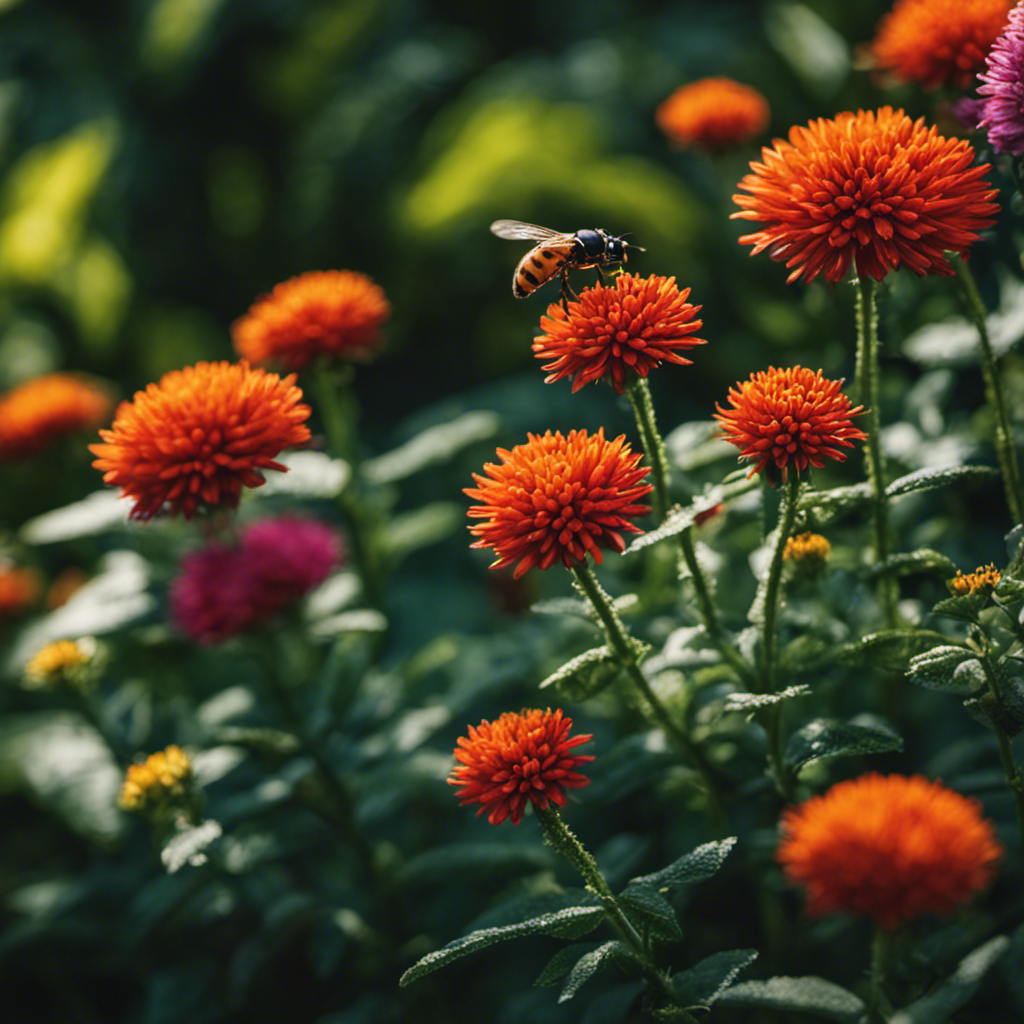
Attracting beneficial insects to your garden naturally is a simple and effective way to promote a healthy ecosystem. One way to do this is by regularly planting flowering plants. These plants act as a magnet for beneficial insects such as bees, butterflies, and ladybugs, which play a crucial role in pollination and controlling harmful pests.
To enhance your garden’s ability to attract beneficial insects, consider the following strategies:
-
Companion planting: Plant marigolds near tomatoes to deter aphids and attract ladybugs. You can also grow dill, fennel, or parsley to attract predatory wasps that help control caterpillars. Additionally, including sunflowers in your garden will attract bees, which are essential for pollination.
-
Creating insect-friendly habitats: Provide water sources like birdbaths or shallow dishes to attract beneficial insects. Incorporate a diverse range of plants to provide shelter and food for a variety of insects. It’s also important to avoid using pesticides that can harm beneficial insects.
Use Organic Pest Control Sprays and Solutions
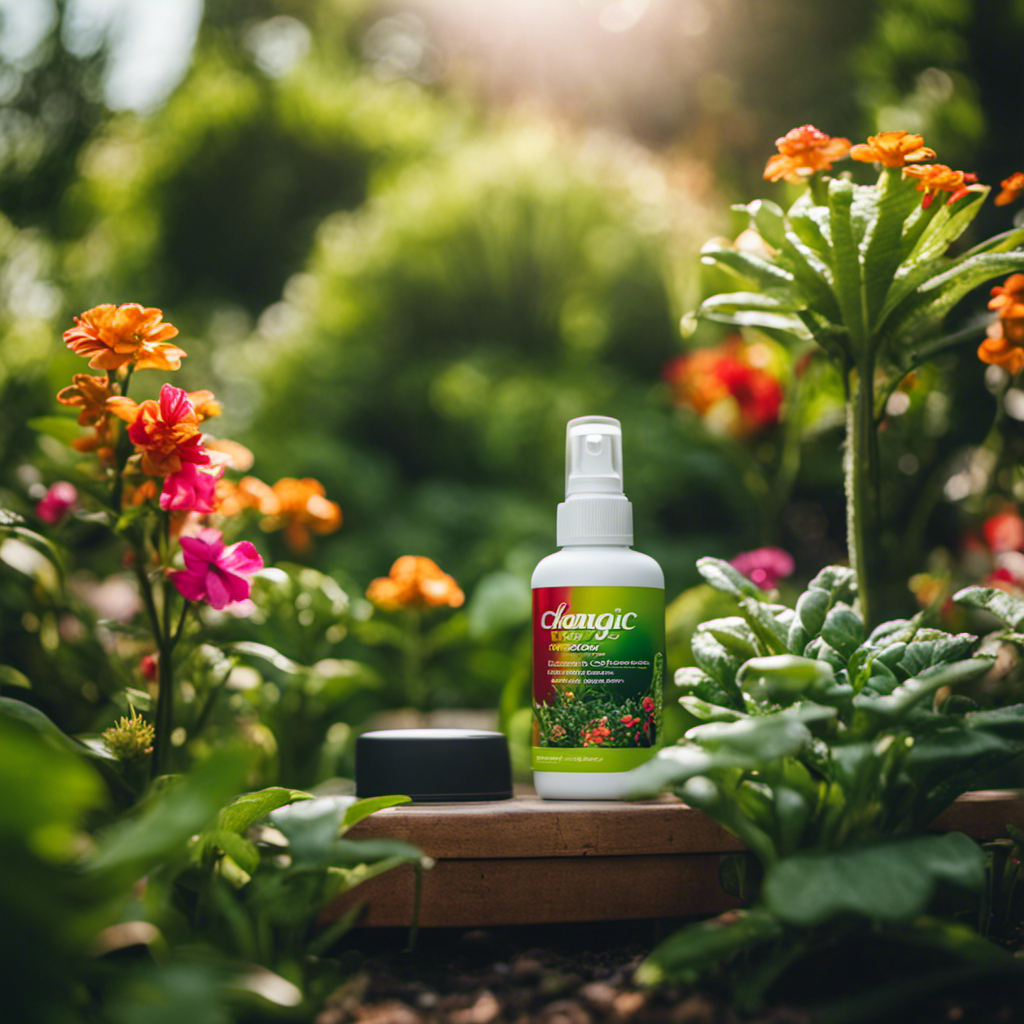
Keep your garden free from pests by using organic pest control sprays and solutions. Homemade remedies using essential oils can be highly effective in maintaining a pest-free garden. Essential oils like peppermint, neem, and garlic have properties that repel a wide range of pests, including aphids, ants, and beetles.
You can easily make your own organic pest control spray by mixing a few drops of your preferred essential oil with water in a spray bottle. After shaking well, spray the mixture directly onto the affected plants. The strong scent of the essential oils will deter pests, ensuring the health and prosperity of your garden.
Remember to reapply the spray after rain or every few days for maximum effectiveness. By utilizing these natural and safe solutions, you can protect your garden without causing harm to the environment.
Maintain a Healthy Garden Ecosystem
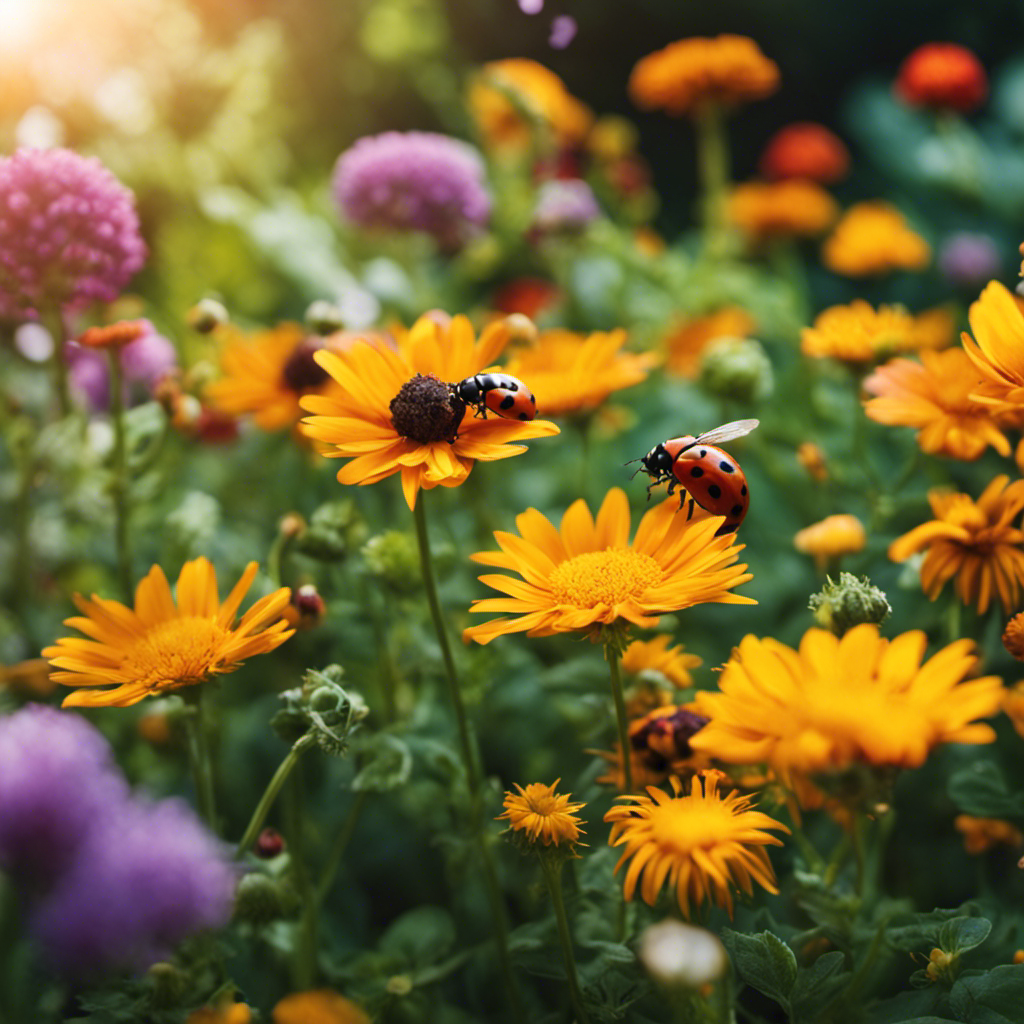
Creating a healthy garden ecosystem requires maintaining a balanced and diverse environment for beneficial insects and organisms. To achieve this, you can follow these simple tips to enhance soil fertility and practice companion planting:
-
Add organic matter: Regularly incorporate compost or well-rotted manure into your soil to improve its fertility and provide essential nutrients for plants.
-
Rotate crops: Avoid planting the same crops in the same spot year after year. By rotating your crops, you can prevent the buildup of pests and diseases and maintain soil health.
-
Practice companion planting: Planting certain combinations of plants can help deter pests, attract beneficial insects, and improve pollination. For instance, planting marigolds alongside tomatoes can repel nematodes while attracting bees and other pollinators.
Conclusion
By implementing natural pest deterrents, attracting beneficial insects, and using organic pest control sprays and solutions, you can effectively banish garden pests and maintain a healthy garden ecosystem.
For instance, a gardener in California successfully repelled aphids by introducing ladybugs into their garden, creating a natural balance that kept the pests at bay without the need for harmful pesticides.
These methods not only help you enjoy a pest-free garden but also contribute to environmental protection.
